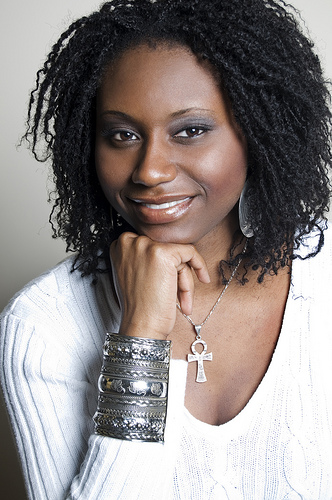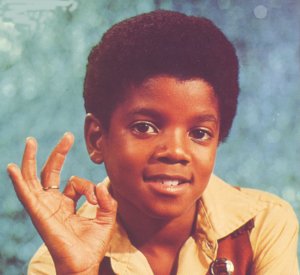
Jessica Ann Mitchell
In 2005, the Congressional Black Caucus Foundation and
Redefining Progress released a research report called, African
Americans and Climate Change: An Unequal Burden. The report
noted that climate change is already in the process of attributing to
160,000 deaths annually. Furthermore, African Americans are prone
to respiratory problems in that over 70% of African Americans live
in districts that are violating “federal air pollution standards”(2005
p.5). There are 44 recognized major U.S. metropolitan areas. In all
of them, African Americans are more likely to be subjected to
levels of toxic air pollution that are higher than those whites
maybe subjected to. Thus, hospital visits and deaths caused by
asthma are more likely to occur among African Americans to the
rate of 3 times that of other races (CBCF 2005). In the northern
states it is predicted that heat waves due to climate change will
effect New York City, Philadelphia, Chicago, and Detroit. As stated
earlier, an increase in diseases such as malaria are predicted to
affect the southern states. All of these areas are known to be
inhabited by large concentrations of African American people. Yet
white Americans are 50 times more likely to have health insurance
than African Americans. Furthermore, African American homes emit
fewer amounts of greenhouse gases into the atmosphere in
comparison to other races at the rate of 20% less (CBCF 2005).
The same can be said for African and other developing
countries whose CO2 emissions are profoundly lower than the
emissions of European countries. All countries on the African
continent combined only attribute to 3.5% of all CO2 emissions in
the world in comparison to the 22% emitted by the U.S. alone (UNEP
2000, EIA 2005). Yet it is estimated that Africans numbering from 75
to 250 million will face water shortages in 2020 (IPCC 2007). This will
also affect 50% percent of agricultural crops that are dependent on
water for nourishment (IPCC 2007). In Latin America, there are 150
million African descendants, making them the largest group of
Africans outside of Africa. In Brazil alone, there are 80 million
African descendants. They make up 48% of the Brazilian population,
yet 78% of these 80 million African descendants are below the
poverty line (Morrison 2007). Twenty six percent of the Colombia
population is African descendants, yet they make up 75% of the
impoverished in Columbia (Morrison 2007). Due, to climate change,
Latin America will also be hit by water and food shortages in the
near future (IPCC 2007). The people mostly affected by these
shortages will be the poor, meaning the African descendants.
Climate Change is an issue that is dramatically affecting the
world as we know it but even more specifically, the Pan-African
World. The problem here is that these issues have not been
studied in-depth by those in the field of Pan-Africanism and Black
Studies. Both Africans on the continent and African descendants
throughout the Diaspora have already begun to unjustly reap the
negative consequences of climate change; which has been mainly
caused by the greenhouse gas emissions of industrially advanced
and or developed nations. One of the causes of climate change
includes the burning of enormous amounts of fossil fuel. (Uwaza,
2003). The earth’s atmosphere then becomes oversaturated with
Carbon Dioxide (CO2) which causes an enhancement of the widely
discussed greenhouse effect.
The greenhouse effect is described as the process in which heat
is trapped in the earth’s atmosphere. This, in turn, causes a
warming of the planet. Part of this process is natural and part of it
is human induced through the burning of natural gas, oil, and
gasoline (EPA 2007). Sixty four percent of the greenhouse effect is
attributed to Carbon Dioxide levels (Uzawa, 2003). Consequently,
the temperatures begin to rise to unusual levels (EPI, 2005). As
Uzawa (2003) states, “an excess concentration of atmospheric
carbon dioxide would warm the globe significantly” (p. 11). The top
five countries that emit the most CO2s into the atmosphere are:
the United States, China, the Russian Federation, Japan and India
(Oak Ridge National Laboratory, 1998).
According to the Center for Disease control (2007), climate
change is going to have damaging effects on the sustainability of
humanity. The effects of climate change include stronger
hurricanes and other storms, flooding, rising sea levels, droughts
in some areas, and extreme rainfall in others (Uwaza, 2003). This
will in turn cause a rapid spread of disease, heat strokes,
drowning, asthma attacks, and etc. It is also noted that the people
who will be affected by these changes the most are likely to be
those with low socio-economic statuses (CDC, 2007).
Developing countries, with their low participation in
contributing to global warming, will also be heavily affected. In fact,
developing countries will be more affected than developed
countries that sometimes benefit from global warming (Uwaza,
2003). Thus, people of color who have historically faced world wide
discrimination based on racism and classism are even more at risk
when it comes to climate change. Many communities with people of
color have been marginalized globally and endure inequalities that
affect the quality of their lives and the ability to sustain life. Any
economic challenges or increases in economic disparities could
have devastating effects on their everyday lives, especially in
relationship to climate change. People with low socio-economic
statuses do not possess the economic power to combat climate
change. Furthermore, the burden of enduring the negative effects
of climate change is placed on their shoulders by those nations,
companies, and organizations that have contributed substantially
to this problem and possess the economic capacity to stop this
injustice.
Women of color specifically face a particular type of
oppression when it comes to climate change because of the
intersection of racism, sexism, and classism (Malveaux 1986). In
the mist of Climate Change, for example, African American women
in Atlanta, GA struggle against rising costs of living, including
rising food prices and medical bills. Still, African Americans emit
lower amounts of CO2 emissions than other races in the U.S (CBCF
2004). On the other hand, African women of Imbaseni village of Maji
ya Chai, Tanzania struggle against the rising costs of living,
including the cost of fertilizers, the inability to render crops for
sale, and medical expenses. This is because irregular changes in
the climate alter the success of agriculture. Yet, the entire
continent of Africa is only responsible for 3.5% of the world’s CO2
emissions (UNEP 2000, EIA 2005). Thus, African and African
descended women similarly face increased hardships due to
climate change and already existing economic inequalities.
Jessica Ann Mitchell
copyright http://www.winonsite.com
Posted in Uncategorized



